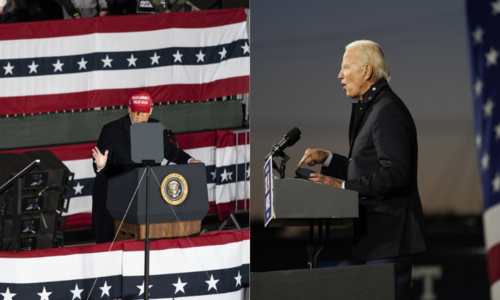A total of 120,000 posts on Facebook and Instagram have been withdrawn for attempting to “obstruct voting” in the United States presidential election and 2.2 million ads have been rejected, Facebook's vice president Nick Clegg said in an interview published on Sunday.
In addition, warnings were posted on 150 million examples of false information posted online, the former British deputy prime minister told the French weekly Journal du Dimanche.
Facebook has been increasing its efforts to avoid a repeat of events leading up to the 2016 US election, won by President Donald Trump, when its network was used for attempts at voter manipulation, carried out from Russia.
There were similar problems ahead of Britain's 2016 referendum on leaving the European Union.
“Thirty-five thousand employees take care of the security of our platforms and contribute for elections,” said Clegg, who is vice president of global affairs and communications at Facebook.
“We have established partnerships with 70 specialised media, including five in France, on the verification of information,” he was quoted as saying in the newspaper.
AFP is one of those partners.
Clegg added that the company also uses artificial intelligence which has “made it possible to delete billions of posts and fake accounts, even before they are reported by users”.
Facebook also stores all advertisements and information on their funding and provenance for seven years “to ensure transparency,” he said.
In 2016, while he was still deputy prime minister, Clegg complained to the Journal du Dimanche that Facebook had not identified or suppressed a single foreign network interfering in the US election.
On Wednesday, Trump rebuked Facebook and Twitter for blocking links to a New York Post article purporting to expose corrupt dealings by election rival Joe Biden and his son Hunter in Ukraine.
A day earlier Facebook announced a ban on ads that discourage people from getting vaccinated, in light of the coronavirus pandemic which the social media giant said has “highlighted the importance of preventive health behaviours".














































